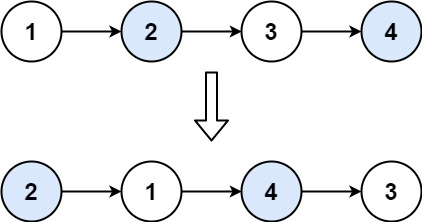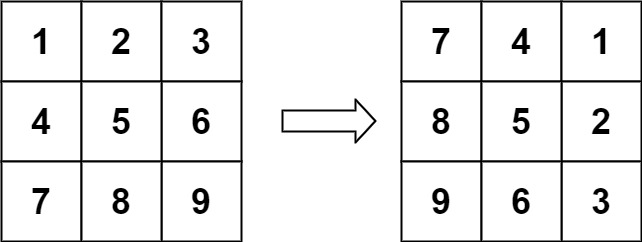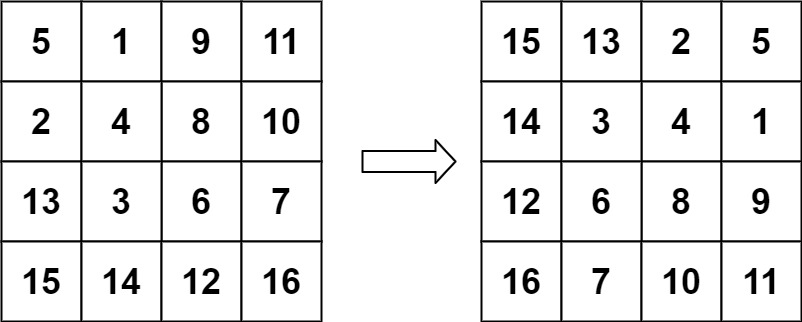Problem: Given an m x n binary matrix mat, return the distance of the nearest 0 for each cell.
The distance between two adjacent cells is 1.
Example:
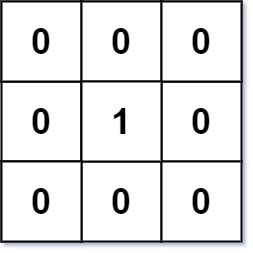
Input: mat = [[0,0,0],[0,1,0],[0,0,0]] Output: [[0,0,0],[0,1,0],[0,0,0]]
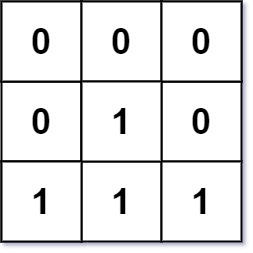
Input: mat = [[0,0,0],[0,1,0],[1,1,1]] Output: [[0,0,0],[0,1,0],[1,2,1]]
Constraints:
- m == mat.length
- n == mat[i].length
- 1 <= m, n <= 104
- 1 <= m * n <= 104
- mat[i][j] is either 0 or 1.
- There is at least one 0 in mat.
Approach: This problem is getting the minimum distance between nodes of a graph. A node (cell) is connected to other node (cell) in case they are neighbours (left, right, up, down). Now we just need to calculate the minimum distance of cells with 0 to cells with 1.
Given we need to calculate minimum distance, we need to apply the BFS here. That's all!
Implementation in C#:
public int[][] UpdateMatrix(int[][] mat)
{
int rows = mat?.Length ?? 0;
if (rows == 0)
{
return new int[][]{};
}
int cols = mat[0].Length;
bool[,] visited = new bool[rows, cols];
Queue<int[]> queue = new Queue<int[]>();
this.AddZeroCellsToQueue(mat, queue, visited);
while (queue.Count != 0)
{
int[] cell = queue.Dequeue();
this.UpdateNeighboursAndAddToQueueIfValid(mat, queue, visited, cell[0], cell[1]);
}
return mat;
}
private void UpdateNeighboursAndAddToQueueIfValid(
int[][] mat,
Queue<int[]> queue,
bool[,] visited,
int row,
int col
)
{
// up
this.UpdateCellAndAddToQueueIfValid(mat, queue, visited, row, col, row - 1, col);
// down
this.UpdateCellAndAddToQueueIfValid(mat, queue, visited, row, col, row + 1, col);
// left
this.UpdateCellAndAddToQueueIfValid(mat, queue, visited, row, col, row, col - 1);
// right
this.UpdateCellAndAddToQueueIfValid(mat, queue, visited, row, col, row, col + 1);
}
private void UpdateCellAndAddToQueueIfValid(
int[][] mat,
Queue<int[]> queue,
bool[,] visited,
int parentRow,
int parentCol,
int row,
int col
)
{
if ( row < 0
|| row >= mat.Length
|| col < 0
|| col >= mat[0].Length
|| visited[row, col]
)
{
return;
}
mat[row][col] = mat[parentRow][parentCol] + 1;
visited[row, col] = true;
queue.Enqueue(new int[] { row, col });
}
private void AddZeroCellsToQueue(int[][] mat, Queue<int[]> queue, bool[,] visited)
{
for (int i = 0; i < mat.Length; ++i)
{
for (int j = 0; j < mat[0].Length; ++j)
{
if (mat[i][j] == 0)
{
queue.Enqueue(new int[] {i, j});
visited[i, j] = true;
}
}
}
}
Complexity: O(m * n)
